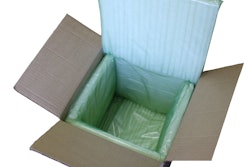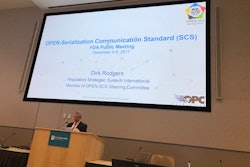As a believer in the coexistence of science and the environment, the Glaunsinger Lab at the University of California-Berkeley takes a proactive approach to its efforts to recycle and reuse coolers needed for the storage and shipment of temperature-sensitive reagents, chemicals and kits.
That approach, however, became more difficult to adhere to as the number of polystyrene cooler return programs dwindled, representing a disturbing trend to Lab Manager Jennifer Blancas. To remedy that environmental concern, the Glaunsinger Lab now works with MilliporeSigma. “They’re one of the few vendors that have a cooler return program,” she explains.
Last year, MilliporeSigma’s distribution centers in Milwaukee, Allentown and St. Louis shipped 971 coolers to UCB, which equates to 18/wk.
Studies at the Glaunsinger Lab aim to enhance the understanding of virus-host interactions, as well as provide insight into how gene expression pathways are normally regulated in human cells. The reagents, chemicals and kits require that temperatures remain lower than ambient for shipping and storage, as room temperatures could destroy experiment conditions or materials.
To meet those temperature requirements, the lab uses insulated coolers packed with blue ice or dry ice. The coolers maintain appropriate temperatures for several hours up to a couple days, depending on the needs of the shipment.
Blancas explains, “Once a cooler is used, [we had to determine] how it could it be diverted from the landfill waste stream. Our recycling program is hesitant to accept #6 [Society of Plastics Industry’s recycling code for polystyrene, or EPS] since there is no system in place that provides an offset to the cost of recycling. Some recycling centers package up the [EPS] waste and ship it out of country. Therefore, the carbon footprint is not alleviated, but worsened.”
Economic considerations also come into play in that there are fees associated with hauling away either waste or recyclable materials. To avoid those costs, Glaunsinger Lab takes EPS materials to a recycling center.
The returns process
Originally a Sigma-Aldrich process [in 2015, EMD Millipore and Sigma-Aldrich combined businesses], the MilliporeSigma return program is currently active in three of the main distribution centers.
MilliporeSigma applies a cooler return program label to the top of the cooler lid that informs Glaunsinger Lab about the cooler return procedure, which includes the following steps:
1: Remove the products and ice pack from the EPS container.
2: Place the EPS container back in the box it came in.
3: Switch the flaps of the shipping box inside out, tape and drop the box at any location where USPS picks up mail. Inside flaps contain pre-paid shipping and address information.
The coolers are delivered to MilliporeSigma’s partner in St. Louis that maintains the coolers, replaces the distribution boxes and then sends coolers to the St. Louis distribution center for reuse.
Blancas says, “I only need to remove items from inside the cooler, reverse the flaps on top of the outer case, tape the case shut, put a zip code on the return label and drop it in the mail. Otherwise, we can ship items to fellow researchers using the cooler and case. We hope that they would either reuse or return the cooler to divert it from the landfill waste stream.
“Here at UC Berkeley, many research laboratories in multiple departments order items needing sub-room temperatures. We have a few stockrooms on campus that keep a running inventory based on their customer needs. Any individual can prepare a cooler to return to MilliporeSigma.” The program saves Glaunsinger Lab time and money, and helps prevent coolers from ending up in a landfill, meeting its scientific and environmental goals.























